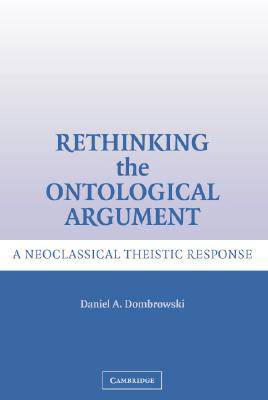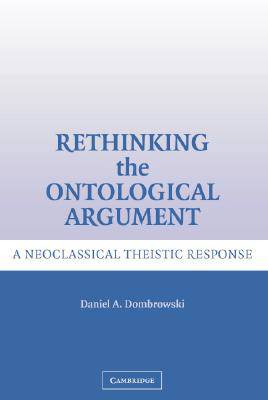
- Afhalen na 1 uur in een winkel met voorraad
- Gratis thuislevering in België vanaf € 30
- Ruim aanbod met 7 miljoen producten
- Afhalen na 1 uur in een winkel met voorraad
- Gratis thuislevering in België vanaf € 30
- Ruim aanbod met 7 miljoen producten
Zoeken
Rethinking the Ontological Argument
A Neoclassical Theistic Response
Daniel A Dombrowski
Hardcover | Engels
€ 172,95
+ 345 punten
Uitvoering
Omschrijving
In recent years, the ontological argument and theistic metaphysics have been criticised by philosophers working in both the analytic and continental traditions. Responses to these criticisms have primarily come from philosophers who make use of the traditional, and problematic, concept of God. In this volume, Daniel A. Dombrowski defends the ontological argument against its contemporary critics, but he does so by using a neoclassical or process concept of God, thereby strengthening the case for a contemporary theistic metaphysics. Relying on the thought of Charles Hartshorne, he builds on Hartshorne's crucial distinction between divine existence and divine actuality, which enables neoclassical defenders of the ontological argument to avoid the familiar criticism that the argument moves illegitimately from an abstract concept to concrete reality. His argument, thus, avoids the problems inherent in the traditional concept of God as static.
Specificaties
Betrokkenen
- Auteur(s):
- Uitgeverij:
Inhoud
- Aantal bladzijden:
- 182
- Taal:
- Engels
Eigenschappen
- Productcode (EAN):
- 9780521863698
- Verschijningsdatum:
- 29/05/2006
- Uitvoering:
- Hardcover
- Formaat:
- Genaaid
- Afmetingen:
- 160 mm x 230 mm
- Gewicht:
- 381 g

Alleen bij Standaard Boekhandel
+ 345 punten op je klantenkaart van Standaard Boekhandel
Beoordelingen
We publiceren alleen reviews die voldoen aan de voorwaarden voor reviews. Bekijk onze voorwaarden voor reviews.











